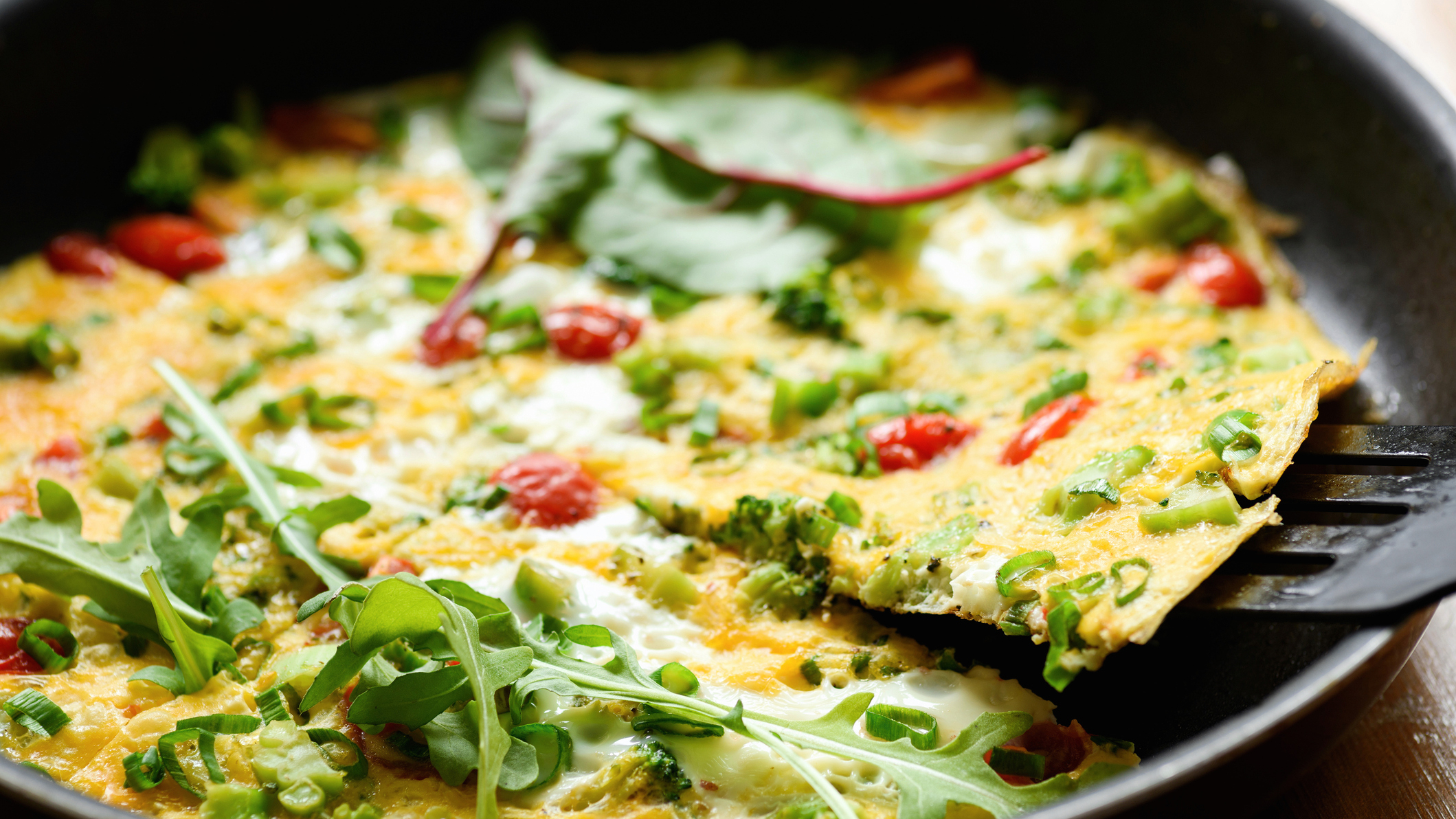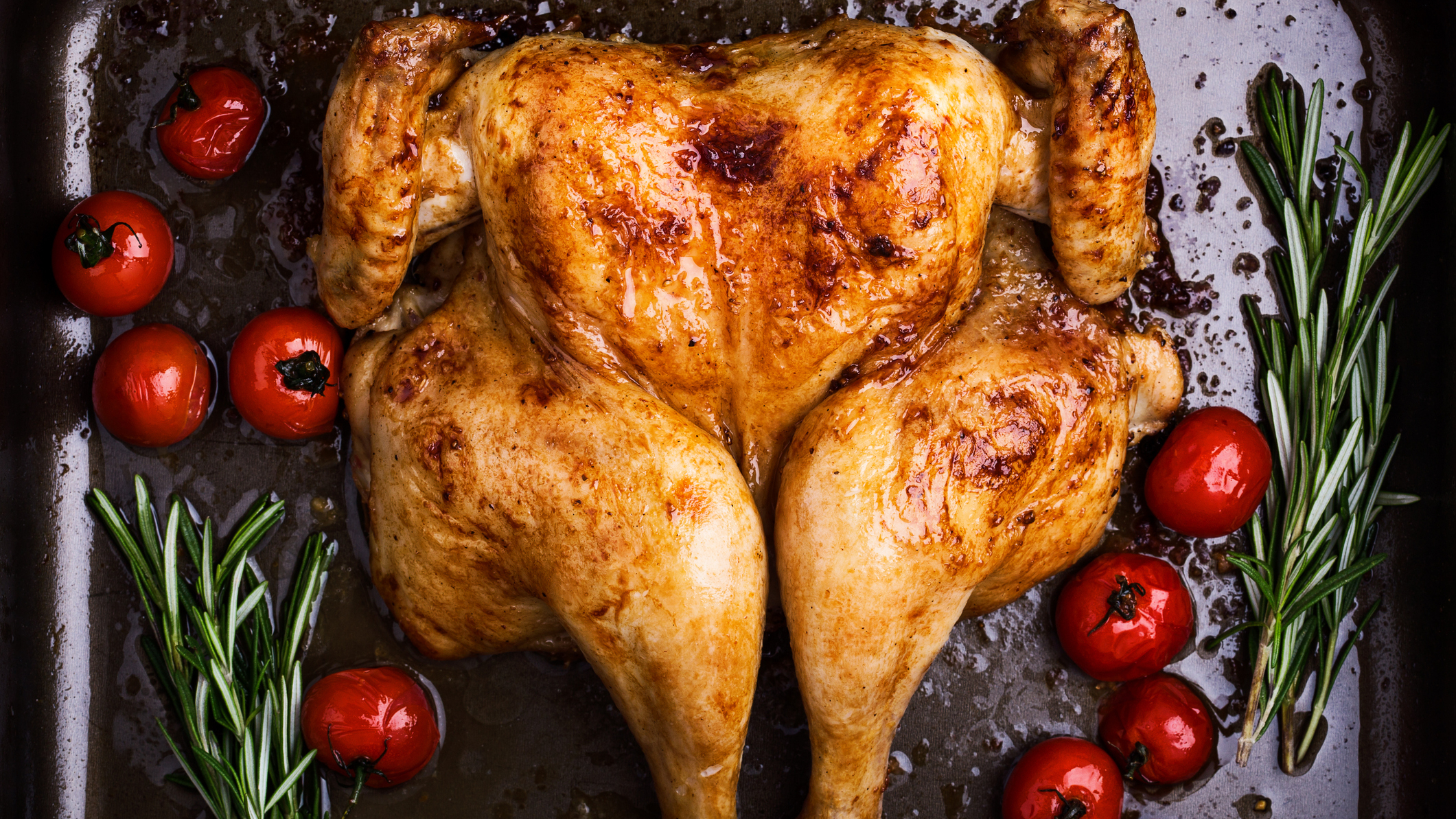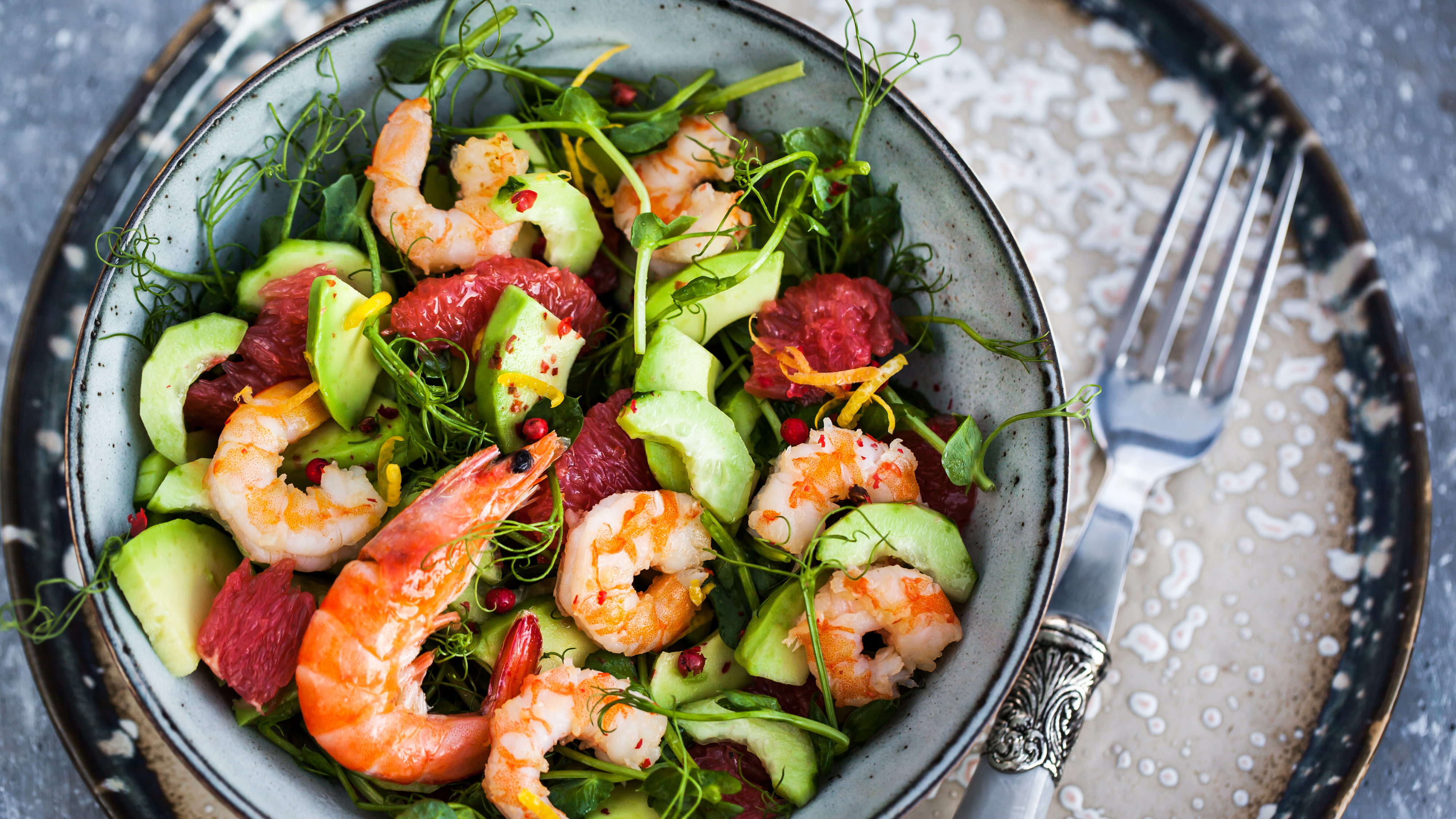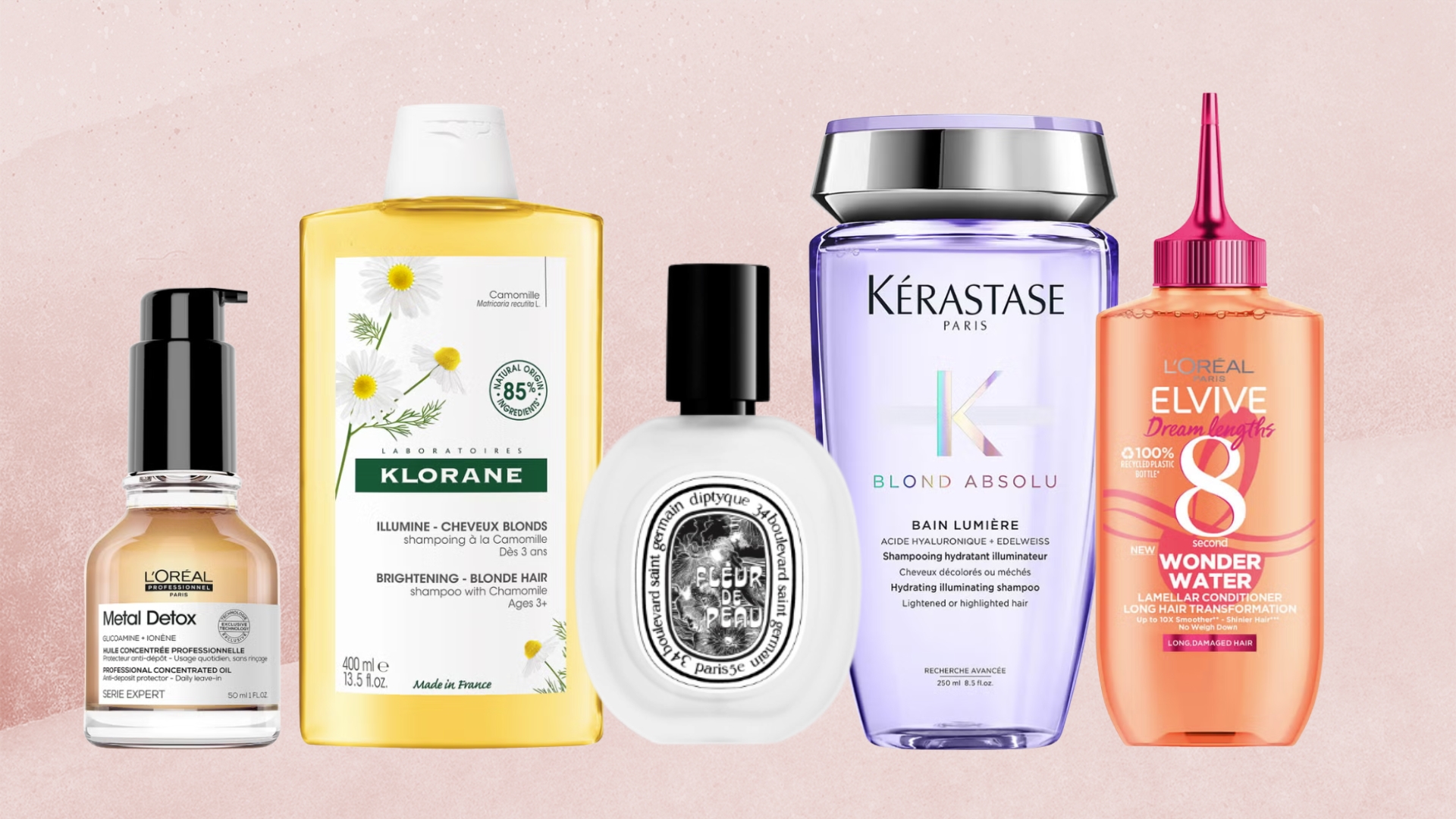What is the Whole 30 diet? Here's what you can eat on the month-long plan
The Whole 30 diet claims to boost health in just a matter of weeks—but you should treat this restrictive eating regime with caution...


The Whole 30 diet is one of the most restrictive eating regimes around—but some swear by its ability to give the body a 'reset'. It involves eating only certain foods for, you guessed it, 30 days which therefore means you have to refrain from consuming many kitchen cupboard staples. While alcohol and sugar are obviously off the menu, there are other more unlikely items going with them, including dairy, legumes, and grains.
Proponents of the eating regime say doing this will allow you to then see which foods leave you feeling better than others—and it may provide a host of positive health benefits to your gut and even weight in the process. However, unlike the Mediterranean diet, this highly restrictive, elimination-based eating regime isn't based on scientific research and may leave you lacking in particular important nutrients. Here, we explain what it is and the items that can stay on your shopping list, as well as what the possible positives may be, but also why it might not be the best option for you.
What is the Whole 30 diet and which foods can you eat?

"The Whole30 diet was created in 2009, and is a month-long eating regime that resembles 'clean-eating' principles," says Josie Porter, Doctify-reviewed dietitian at The Gut Health Clinic. "It promises a host of health benefits such as weight loss, boosted energy levels, increased exercise performance, and better sleep." Tamara Willner, a nutritionist at Second Nature, adds: "There are claims that it can result in an improvement to allergies, anxiety, chronic pain, digestive issues, and skin conditions."
How does it work? "The concept of the diet is to eliminate foods that 'harm your health'," explains Porter. "If dieters accidentally 'cheat' on the diet, they are advised to restart the month again to reap the full 'reset' benefits. Once the 30-day 'reset' has finished, dieters are required to follow a re-introduction phase. Here food groups are slowly re-introduced once at a time, to enable dieters to assess how these foods feel when they eat them." Willner notes, "An unusual aspect of this diet is that you’re actively discouraged from weighing yourself or taking body measurements during the 30-day program. The idea is that this will help to shift focus from weight and encourage people to notice other benefits, such as reduced cravings and increased energy."
According to Porter, the foods you should stick to for the month-long plan are meat, seafood, eggs, and fruit or fruit juices and vegetables. You can also consume natural fats and ghee or clarified butter, as well as spices and seasoning, coconut aminos, vinegar, and salt. She adds, "You should avoid sugar, artificial sweeteners, alcohol, legumes, dairy—including milk replacements such as nut milk—additives and soy." Wheat, barley, rice, and oats, as well as ancient grains like quinoa, are also off the menu.
What can you eat on the Whole 30 diet?
- All vegetables, including potatoes.
- Fruit
- Seafood, such as fish, oysters, shrimp, and mussels.
- Unprocessed meats
- Nuts and seeds
- Eggs
- Olive oil and coconut oil
- Black coffee
What can't you eat on the Whole 30 diet
- Dairy
- Grains (including corn, wheat, rice)
- Added sugar
- Legumes (including chickpeas, lentils, soy)
- French fries and potato chips
- Pasta
- Bread
- Processed additives
- Alcohol
Should you try the Whole 30 diet? Possible benefits

There haven't been any clinical trials conducted on the Whole 30 diet. "However, we know that cutting out highly processed food and replacing these with their minimally processed counterparts is likely to be better for our health," says Porter. "Highly processed foods tend to have added sugar, salt, and fats which may increase our risk of certain diseases, and these foods tend to have less fiber. This may have an impact on our digestion, cholesterol, blood sugar control, and improve gut health."
Daisy York, a nutritionist, and co-founder of wellbeing platform Aegle, notes that it could also help you identify which approach to nutrition works best for you individually. "The challenge eliminates many foods that are unhealthful such as trans fats, added sugar, alcohol, processed additives as well as foods that may be problematic for some individuals such as dairy, grains, and legumes," she explains. "Elimination diets are a good way to increase awareness about your own individual responses to foods and move away from the 'good versus bad foods' rhetoric."
Sign up for the woman&home newsletter
Sign up to our free daily email for the latest royal and entertainment news, interesting opinion, expert advice on styling and beauty trends, and no-nonsense guides to the health and wellness questions you want answered.
If you're wondering how to lose weight, it may also aid in this. "By eliminating grains, legumes, and sugar, you will automatically be following a lower-carb diet which has been shown to be an effective weight loss and type 2 diabetes management tool," points out Willner. "Likewise, eating fewer processed foods will, over time, reduce cravings which may result in eating less and losing weight." However, she adds that there is currently no published evidence to support this.
What are the downsides to the Whole 30 diet?

As with other restrictive diets, there are many negatives to be aware of. "This diet comes with many rules, which are well known to feed a poor relationship with food," explains nutritionist Jenna Hope. "Heavy restriction can contribute to a binge-restrict diet cycle and may leave followers craving the foods which are off-limits." She adds that, for most, it's best to find a long-term, nourishing diet that's sustainable for you.
There is also the risk of nutrient deficiency, just like the keto diet. "Fiber intake is likely to be greatly reduced, in addition to nutrients that are provided in grains, such as B vitamins—including thiamin, riboflavin, niacin, and folate—vitamin E and minerals, like iron, magnesium, and selenium, and riboflavin, calcium and vitamin D found in dairy," points out Dr Kirstie Lawton, PhD, a registered nutritionist from the Institute for Optimum Nutrition. "Additionally, given the removal of soy and legumes, this regime may not provide suitable for those consuming a largely plant-based diet who require vegetarian or vegan protein sources."
There are also downsides that come with its relatively short length. "A 30-day challenge is unlikely to do harm, but it may not provide the answers you are looking for," explains York. "If you are doing an elimination diet to uncover a food sensitivity or a root cause of an imbalance, it's best to do it under the supervision of a professional who knows what to look out for." She adds that, before radically changing a diet, it is important to seek advice from a doctor if you are on medications, if you have a diagnosis or if you have any history of disordered eating behavior.
w&h thanks nutritionist Jenna Hope, Tamara Willner, nutritionist at NHS-backed eating plan Second Nature, Josie Porter, Doctify-reviewed dietitian at The Gut Health Clinic, Dr Kirstie Lawton, PhD, a registered nutritionist from the Institute for Optimum Nutrition, and Daisy York, nutritionist, and co-founder of Aegle, for their time and expertise.

Lauren is a freelance writer and editor with a decade of print and digital journalism experience. While she specialises in covering health and wellness topics - ranging from nutrition and fitness, to women’s health conditions and mental wellbeing - she has written across a diverse range of lifestyle topics, including fashion, beauty, interiors and travel.
In addition to writing for Woman & Home and sister title Homes & Gardens, Lauren's work has also been published by Women’s Health, The Times, Daily Telegraph, Elle, Cosmopolitan, The Guardian, Marie Claire, Body + Soul, Stylist, Glamour, Grazia, Red, Dazed Digital, Yahoo Life, The Sun’s Fabulous, Get The Gloss and Hello! among others.
-
 French haircare is our beauty team's (not so) secret to chic and hydrated strands - these are the 5 formulas to invest in
French haircare is our beauty team's (not so) secret to chic and hydrated strands - these are the 5 formulas to invest inWe'd love to do as the French women do and keep mum on our go-to haircare buys, but they're simply too good not to share...
By Naomi Jamieson Published
-
 Vegetables to plant in April: 8 crops to start now for a delicious harvest later in the year
Vegetables to plant in April: 8 crops to start now for a delicious harvest later in the yearDiscover which vegetables to plant in April, and top tips for growing success
By Holly Crossley Published